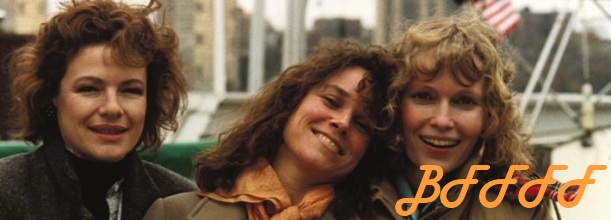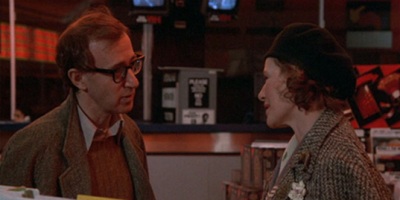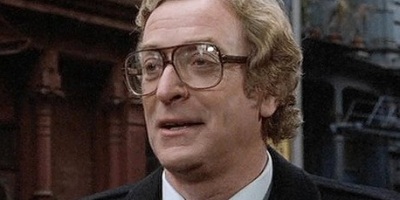Best for Film’s Favourite Flicks #12 – Hannah and Her Sisters

Hannah and Her Sisters brims over with warmth and humanity, making it the perfect choice when a little pick-me-up is necessary at the end of a hard day, preferably enjoyed wrapped in a blanket with a hot beverage at your side. The cast is flawless, testified by the Oscars picked up by Michael Caine and Dianne Wiest for their performances. It’s also one of Woody’s best scripts, and he bagged an Academy Award for it too. Every time I watch it I’m reminded of some aspect of its genius I’d forgotten, or, as in all the best films, I notice something that I hadn’t before.
For those of you unlucky enough not to have seen this masterpiece, Hannah and Her Sisters is essentially about what the title suggests. At the beginning, after a chapter heading in white against a black screen which reads ‘God, she’s beautiful’, we are introduced to the extended family of Hannah, daughter of Nora (Maurine O’Sullivan) and Evan (Lloyd Nolan) wife of Eliot (Caine), ex-wife of Mickey (Allen) and sister of Lee (Hershey) and Holly (Wiest). Each chapter begins with a narrator of inner monologue, the first being Caine, who is lusting after Lee. With each chapter, a new aspect of the lives this large array of characters is laid out, and I will attempt to sum up the basics of the plot. Here goes.
Eliot is falling in love with Lee. Lee is in a relationship with artist Frederick (Max von Sydow). Mickey is a TV producer who has a health scare and ‘drops out of life’ to think about the Big Questions of life and death, and gets quite depressed about it. Holly is trying to be an actress, but at the beginning of the film is setting up a catering company with her friend April (Carrie Fisher). Both of them are attracted to architect David (Sam Waterston). Along the way Nora and Evan have a bit of a crisis due to Nora’s alcoholism. I think that’s about it.
Because the film is divided up into chapters, there’s a treasure trove of great scenes to savour again and again. Highlights include the break-up scene between Max von Sydlow and Barbara Hershey, filmed in one take and so powerful that apparently the crew burst into spontaneous applause when it cut. The disastrous date between Woody Allen and Dianne Wiest in which she takes him to a punk gig that he hates so he takes her to a jazz café that she hates and snorts cocaine all the way through. Caine’s confession of love to Hershey; Hannah’s parents’ alcohol-fuelled tiff; Allen’s attempted suicide. Classics all.
I caught the Woody Allen bug when I was sixteen or seventeen. It was quite a project to commit to, and I remember regarding getting through his whole ouvre as something of a challenge. The man has produced a film a year pretty solidly since the late seventies. (On a side note, it was around that time that I first got into Iris Murdoch, who also averaged a novel a year from 1954 to 1996. Allen and Murdoch’s works are similar in many ways, but that’s something for another place). I think I decided to start with Annie Hall and work my way through them semi-chronologically. In doing this it soon became apparent that for a good twenty years or so Allen tended to make a romantic comedy (like Annie Hall), followed by a Bergmanesque drama (like Interiors), then back to comedy again. This meant that I essentially got two directors for the price of one – the neurotic, sharp, funny and warm Woody half the time, and the dark, serious, bleak and pessimistic Woody the rest of the time. Then I watched Hannah and Her Sisters.
It was different. (Aside again: it’s the most Murdochian Allen film, apart from maybe Crimes and Misdemeanours.) It is unmistakably a Woody Allen film. You couldn’t get more Woody Allen than this – the neurosis, the love pangs, the philosophical musings, the jazz, the jokes, New York, middle-class writers, producers, agents, actors – it’s all here. What was different was that while dealing with serious issues like love and death like the Bergman homages, it successfully mixes in the irreverence, the humour, the realistic warmth of the comedies. He pulls off the feat of merging his two styles together so well that when you reach the end – oh God – the ending!
I have introduced quite a few friends to Woody Allen over the years, and I generally start with Hannah and Her Sisters, because of this blending of styles, and every time their reaction to the ending has been the same as mine. They melt. I watched it about a month ago and welled up. The feeling is similar to a hug from your mum, or your dad, or your granny. The point about the ending is that its achievement is a very rare one in its emotional resonance, and that it manages to occlude the darkness in the movie in the same way that getting an A in an essay you’ve worked hard on washes away the memory of the agony you went through to achieve it. It’s a perfect ending.







Recent Comments